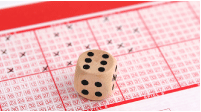CARL WATTS & ASSOCIATES
May 14, 2012

|
Washington DC
|
tel/fax 202 350-9002 |
|
So you’ve got the bug and you enjoy a little gambling here and there. Nothing wrong with that, but you should be aware of the IRS requirements for income and losses incurred from casual gambling.
|
|
Gambling winnings are considered as income and need to be reported on line 21 (other income) of the 1040.
 |
|
Gambling income includes, but is not limited to, winnings from lotteries, raffles, horse races, and casinos. It includes cash winnings and also the fair market value of prizes such as cars and trips.
|
|
|
|
For most types of gambling at a legitimate gaming facility, you will usually be issued a Form W-2G (Certain Gambling Winnings) if you win $600 or more. The IRS gets a copy too, so you better make sure the gross gambling winnings reported on Line 21 of your Form 1040 at least equal the sum of the amounts reported on any Forms W-2G you receive. In addition, you may be required to pay an estimated tax on your gambling winnings.
|
|
|
| Your gambling winnings may be subject to a standard 25% tax if they total more than $5,000, minus the value of any original wager (depending on the game) and your gambling losses. |
|
|
|
If you win a non-cash prize, such as a car or a trip, you will be responsible for the taxes on the fair market value of the item or items (if the value exceeds $5,000).
|
|
One of the most important rule in reporting your gambling wins and losses is that you can only deduct gambling losses for the year to the extent of your gambling winnings for that year. This limitation applies to the combined results from any and all types of gambling--playing the lottery, slots, poker, the horses, and all the rest.
 |
|
After applying the losses-cannot-exceed-winnings limitation, the allowable gambling loss deduction for a person who is not a professional gambler is claimed on Line 28 of Schedule A (Itemized Deductions). If you don't itemize, you do not get a write-off. Also, an amateur gambler cannot deduct any out-of-pocket expenses related to gambling (such as transportation costs, meals, and lodging). |
|
|
Gambling: Wins & Losses

Since we’ve mentioned amateur gamblers, who exactly is a professional gambler?
|
|
To be considered a professional gambler you must devote substantial time to gambling on a regular basis, and you must depend on gambling winnings as a meaningful source of income. It also helps if you conduct your gambling activities in a business-like fashion by keeping detailed records of wins and losses and developing and evaluating strategies.
|
|
Professional gamblers report their gross winnings as income on Line 1 of Schedule C of Form 1040 (Profit or Loss from Business) and their losses (up to the amount of the winnings) and allowable out-of-pocket expenses (for transportation, 50% of out-of-town meal costs, lodging, and so forth) as business expenses on Schedule C. A professional gambler's allowable out-of-pocket expenses can be deducted in full on Schedule C without regard to the amount of winnings.
|
|
But, whether an amateur or professional gambler, you must document the amount of your losses in order to claim your rightful gambling loss deductions. According to the IRS, taxpayers must compile the following information in a log or similar record.
 |
|
|
|
The date and type of each wager or wagering activity; |
|
|
|
The name and location of the gambling establishment; |
|
|
|
The names of other persons (if any) present with you at the gambling establishment (obviously this requirement cannot be met at a public venue such as a casino or race track); |
|
The amount won or lost. |
|
Be sure to keep detailed records of your gambling winnings and losses, and any related receipts, tickets, statements, or other paperwork. You must be able to prove both your winnings and losses if you wish to deduct your losses.
|
| And, of course, good luck! |
|
Troubles viewing this message? View in browser online here
|